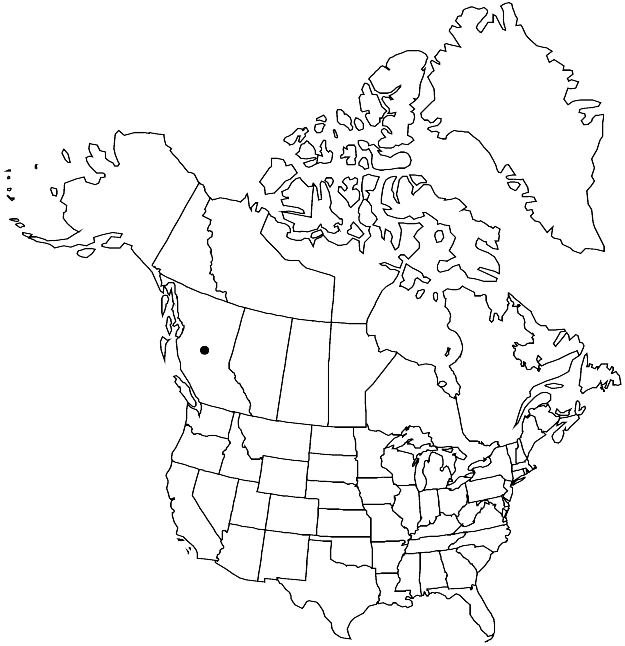Brotherella henonii
Nova Guinea 12: 120. 1914.
Plants large, in loose mats, yellowish green to yellowish brown. Stems 4–6(–12) cm, 1.5–2 mm wide across main leafy shoot, complanate-foliate, pinnate to irregularly branched, penicillate at shoot and branch apices; pseudoparaphyllia filamentous or lanceolate. Leaves erect, ovate-lanceolate, tapering abruptly to apex, 1.7–1.8 mm; margins long-toothed or occasionally entire in acumen; alar cells 3 or 4, yellowish. Sexual condition sterile. Sporophytes unknown.
Phenology: Capsule maturity unknown.
Habitat: Humid shaded sites near streams or cliff bases in forests
Elevation: low elevations
Distribution

B.C., Asia (China, Japan, Korea).
Discussion
Brotherella henonii suggests an overgrown version of B. canadensis, but is paler green, forms looser mats, and grows in more humid shaded sites. The penicillate rather than falcate-secund shoot and branch tips also easily distinguish B. henonii. The British Columbia populations from Queen Charlotte Islands are few, lack sporophytes, and are slightly different from much of Asiatic B. henonii, but this species is sufficiently variable to include the North American material.
Selected References
None.